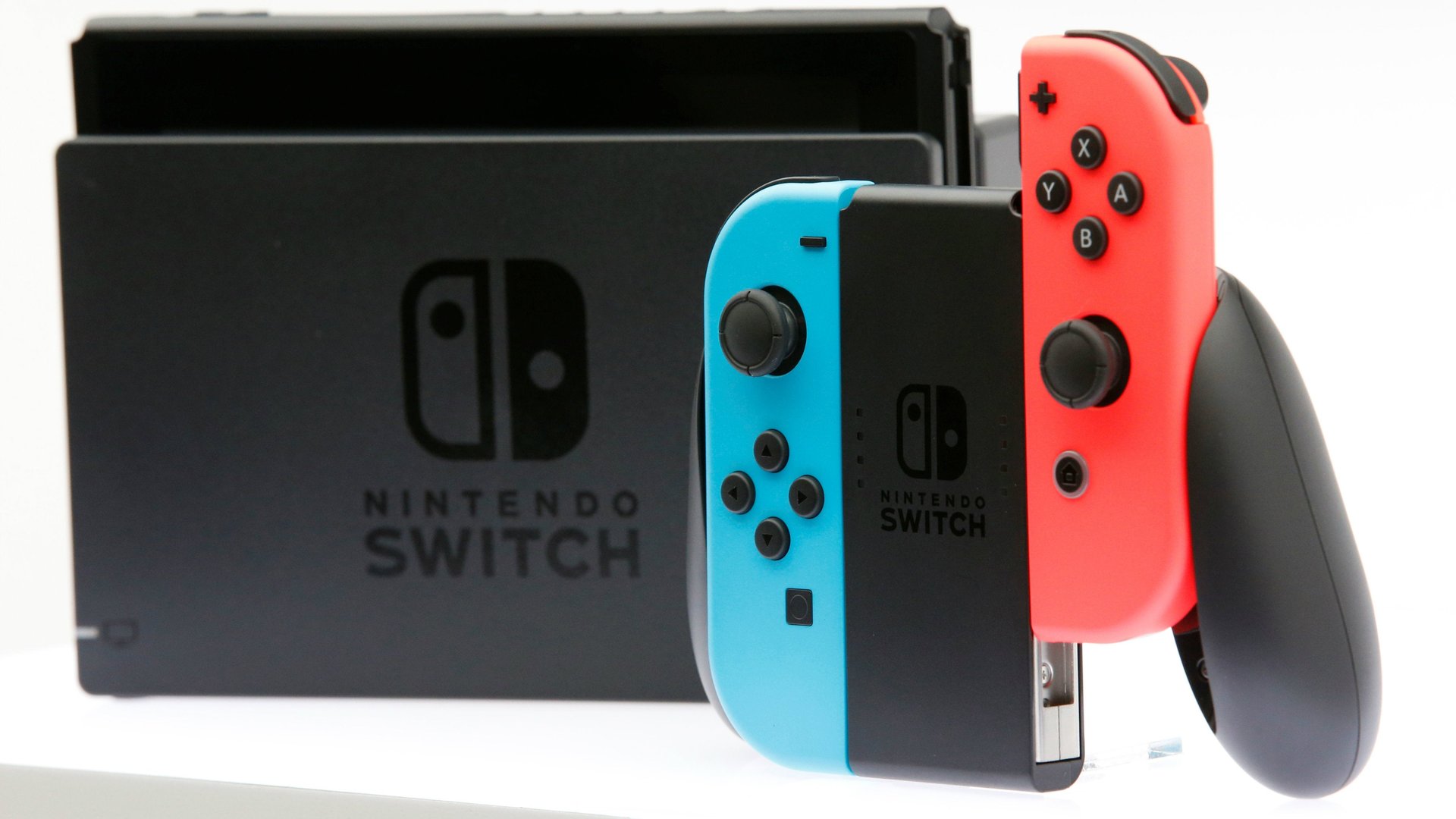Nintendo’s new console is breaking records, but it won’t save Nintendo
Last year Nintendo enjoyed a surprise hit when Pokémon Go took the world by storm. This year, it’s enjoying another hit—one that’s all the more surprising, and arguably more critical for the troubled company’s future.


Last year Nintendo enjoyed a surprise hit when Pokémon Go took the world by storm. This year, it’s enjoying another hit—one that’s all the more surprising, and arguably more critical for the troubled company’s future.
The Nintendo Switch, the company’s latest console, has been flying off the shelf. On Thursday, April 27, the company announced that it had sold 2.74 million units worldwide in March, surpassing the company’s initial target of 2 million units for the month. Earlier this month, market research firm NPD group announced that the Japanese game maker had sold 906,000 units of the device in the US in March.
That placed it as the top-selling US first-month launch ever for a Nintendo console, and also the second-best US first-month launch for any console, behind Sony’s Playstation 4.
The Switch’s strong start has pleased investors. The company’s stock price has risen 9.4% since news of its sales record broke.
The feat appears even more more startling given the overall state of the videogame industry. As more and more consumers get their gaming fix on smartphones, console sales have dwindled. Rough estimates from VGChartz, an organization that tracks the industry, suggest that console unit sales have dropped 55% between 2009 and 2016.
What explains the Nintendo Switch’s strong start amid such a tough climate for consoles?
1. Zelda, Zelda, Zelda
The simplest explanation behind the Nintendo Switch’s unexpected popularity? People just want to play the new Zelda.
The same day the Switch went on sale, Nintendo released The Legend of Zelda: Breath of the Wild as one of the console’s first games. The title, which many have called the best in the series’ 30-year history, flew off shelves—Nintendo sold 925,000 copies, dwarfing even the number of Switch units sold. Meanwhile, sales for the console’s other games were low—the next-best selling Switch title was the mini-game compilation 1-2 Switch, which ranked a distant #13 in NPD’s monthly compilation of top-selling game titles in March. This suggests that Nintendo Switch buyers cared more about Zelda than they cared about the Switch.
For Nintendo, this marks a strength and a weakness. In many ways, the company is the Disney of the gaming industry—Mario, Link, and Pikachu resonate with people so much that they never go out of fashion, and are passed down among generations. But without these signature characters, Nintendo remains just another console maker, competing with millions of smartphones for attention.
2. Buying patterns for consoles have changed
Data from the Entertainment Software Association, a US-based trade group, suggests that console players are getting older. In 2004, the average age of a videogame player was 29 years old, it said. In 2011, the average player was 37 years old. In 2012, the company began including smartphone games in its demographic research, which brought the average age down—suggesting that the newest generation of gamers was eschewing the console for smartphones.
Older gamers have more disposable income than younger ones, who are also likely to rely on parents to pay for their consoles. That enables the former group to buy a console as soon as it’s released. As a result, sales for Nintendo Switch and all other future consoles will likely remain strongest at their initial launch before tapering off, whereas pre-smartphone consoles could rely on latecomer casual gamers to sustain sales years after their first release.
Will it save Nintendo?
Despite the Switch’s record-high sales numbers, the factors driving its strong reception actually underscore the unfavorable business environment Nintendo finds itself in. Nintendo, like countless other companies challenged by the rise of the smartphone, remains in a precarious position.
Unlike Sony and Microsoft, which generate only a portion of their revenues from videogames, nearly all of Nintendo’s revenue stems from console hardware and game sales. To that end, the surge in smartphone gaming at the expense of consoles has been disastrous for Nintendo. The company’s sales have sunk 76% between its 2009 and 2016 financial years.
In order to save itself, the company has slowly forayed into smartphone games, but its track record has been mixed. Pokémon Go was a huge hit, but Nintendo takes home only a portion of that revenue through an affiliate’s licensing and development deals. Super Mario Run, meanwhile, has bombed, as consumers shied away from a steep $9.99 price tag.
The company needs to work much harder on mobile, because devices like the Switch can no longer remain its bread and butter.
“Nintendo is focusing on the Switch now because the company is fundamentally a console maker,” says Serkan Toto, an industry analyst based in Japan. “Once they start taking mobile games seriously, sales will go back up.”
This post was updated with data from Nintendo’s earnings announcement on April 27.